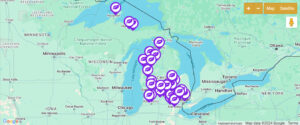Progress report for ONC23-128
Project Information
Pollinators across the region are in decline. Of particular concern are specialist butterflies, whose habitat is shrinking due to the loss of the specific native plants on which they depend. Michigan is home to two endangered butterfly rearing programs, but habitat restoration efforts are limited by the availability of affordable plant materials. While many small-scale farmers have land that could grow the needed native plants, they lack training in native plant cultivation. This project outlines a training program for vegetable farmers and native plant producers and increases connections between them and the conservation community.
We will partner with butterfly conservationists and native plant experts to identify needs and sources for stock materials and to develop a training program on the cultivation and harvesting of these materials. This program will include webinars, handouts, and field days. We will also create an online education module for the public and point of sale materials explaining the importance of specialist butterfly host plants and will create supply chains through leveraging connections with conservation partners.
This program uniquely addresses a key sustainability concern around the loss of pollinators and provides local farmers an additional income stream and a sustainable use for their land.
The goal of this project is to increase the habitat for native specialist butterflies in Michigan by working with farmers to grow native plants. We will do this through the following objectives:
- Improve access to stock of specialist native plants for growers through purchasing and distribution.
- Train farmers to grow and harvest native plants. This training will take the form of field days, webinars, and published case studies.
- Increase planting of specialist plants through online education, point of sale materials, and connections with conservation partners.
Cooperators
- (Educator)
Educational & Outreach Activities
Participation summary:
In 2023 we hosted two training field days in August. The first was targeted towards educators and technicians around the Conservation Reserve Enhancement Program (CREP). We had 26 participants who learned about Key pollinators in Michigan, how to identify pollinator plants, the rare butterflies in MI, and planting for pollinators. Speakers were from Michigan State University, the Kellogg Biological Station, Project Wingspan, and Michigan Natural Features Inventory. The day was a combination of field work, hands-on plant ID, and a field trip to visit sites that were planted into pollinator habitat.
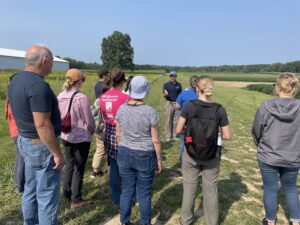
The second field day was targeted towards growers and held at MSU's Trevor Nichols Research Station in Fennville, MI in collaboration with Project Wingspan. Growers were given case studies on pollinator plantings, data on how native plants can support native pollinators, and pollinator biology.
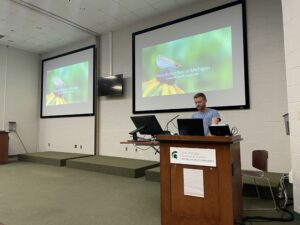
In 2024 we hosted three hands-on workshops.
In July 2024, we had a clinic at Michigan Wildflower farm, for farmers and ag professionals to tour a working native plant farm. This event was picked up by the media, and we were able to give more information to the public through the local news station. Farmers toured the farm, while the owner gave information on specific plants to grow for seed collection, and demonstrated their seed cleaning process.
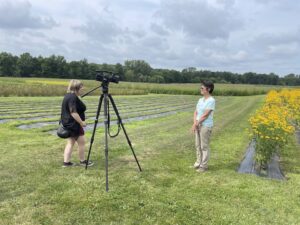
In August, we hosted a work day at the NRCS Rose Lake Plant materials center. Farmers toured the facility, saw native plants, viewed a planting demo, and were introduced to various seed cleaning implements.
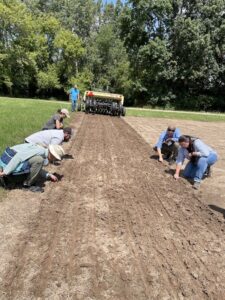
In September we hosted a field day at the Native plant farm Native Connections for a few farmers and a group of MSU Extension specialists. The owners and managers gave a tour of the facility, demonstrated bulk harvesting techniques, and showed their systems for cleaning and storing native seeds.
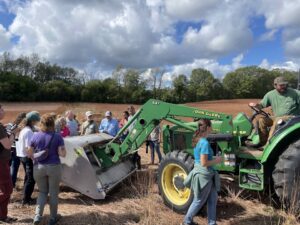
Learning Outcomes
Learning key pollinators in Michigan
Learning needs of pollinators in Michigan
Identifying important plants for pollinators
Learning MI Strips program
Identifying rare butterflies in pollinators
Project Outcomes
We developed a directory of native plant producers in Michigan. This page is a compilation of producers selling native plants so we can direct consumers and landscapers to buy MI grown native plants: Michigan plant producers - Northern Bee Network
